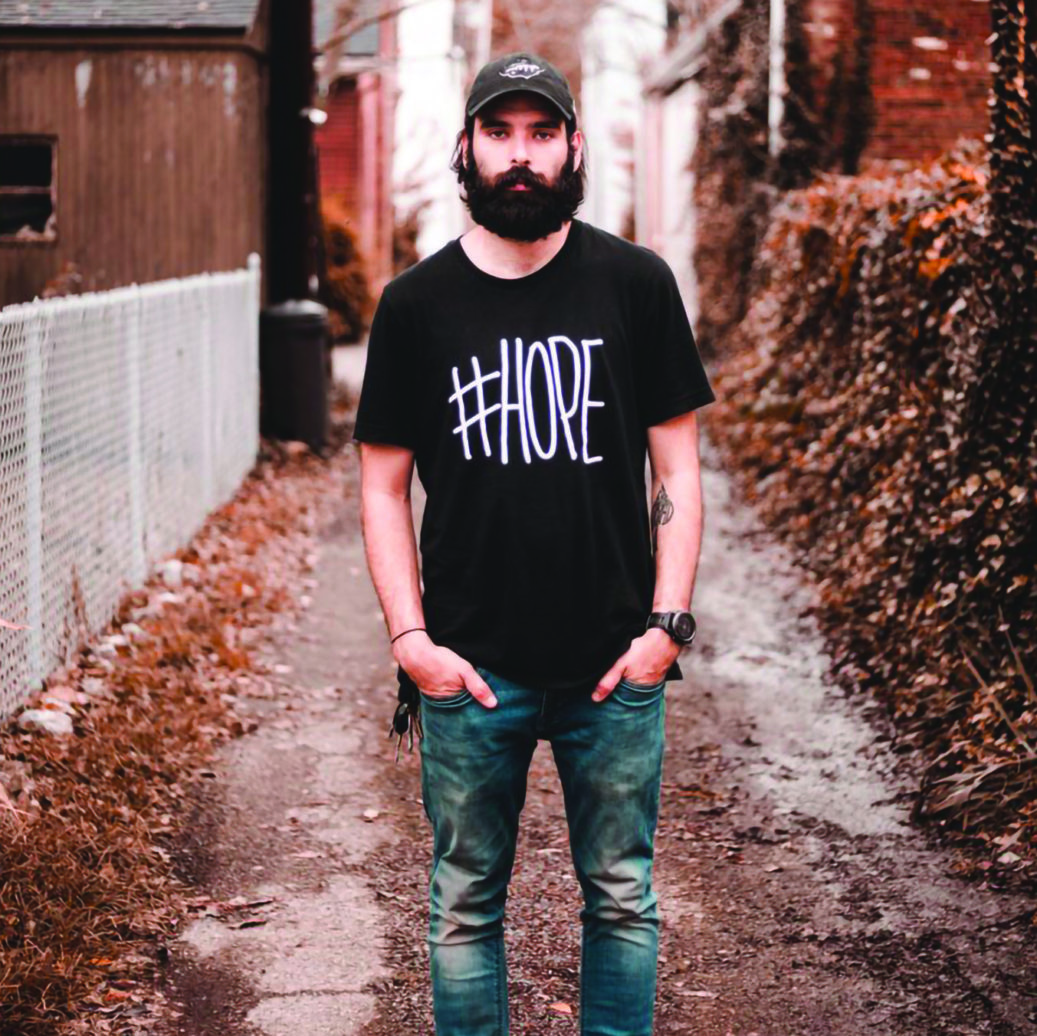A Virtual One-Man Outreach Offers Hope to Emotionally Troubled Young People
As a high school and college student in southern Ontario, Nick Pegg kept bottled up inside himself a fixation with death—until he finally found the courage and the honesty to seek help.
“One of the craziest, most impactful moments in my life was admitting to another man that I wasn’t OK,” says Pegg, who’s now 26. “I basically told my Dad, ‘Look, I’ve been thinking a lot about dying.’ It was one of the most freeing moments of my life to get to share that with someone. It was the first time I ever chose to get over that idea that I’m not allowed to hurt.”
Along the way, too, Pegg became a follower of Jesus. Those two events combined to place a burden on his heart to tell other young people, harbouring the same harmful ideas, that they’re not alone and that there’s a way out that leads to an abundant life. Out of that came an unique Twitter-based outreach called Hashtag Hope. As its website explains, it’s “designed to spread the idea that there can be, and is, hope in life, that you are significant to this world, and that you are loved so deeply.” And as its unofficial motto states, “It’s OK to not be OK.”
Hope is a very, very non-offensive word. Everyone wants a tangible hope in their life.
Getting to this point was not without its pitfalls. Pegg says when he first began interacting via Twitter, with mostly young people who felt depressed or anxious, many were grateful that someone was actually willing to listen and talk to them. However, when he tried to bring Jesus into the conversation, he hit a brick wall. “People were not down for that idea at all,” he says.
That posed for Pegg a new obstacle to overcome: “How could I represent the gospel in a positive light yet still reach out to those around me for whom I have a heart for, who are feeling like they want to die? I said, ‘Well, what’s the gospel and what’s Jesus to me? It was this word— hope.’ It’s a very, very non-offensive word. Everyone wants a tangible hope in their life.
The result was a new Twitter platform Pegg labeled #Hope. “Really quickly it became a brand, then it became a following,” he says. “I would start by saying things—bigger ideas and deeper thoughts—and they started getting a lot of traction online.”
Pegg has also tried to connect with people by speaking in what he calls “fringe environments.” Last summer, he went across Canada with a touring metal band from Montreal. He would go onstage ahead of the band and talk about why he chose not to kill himself. Then he invited people to come and talk with him further at a table set up in the bar. Most often those who responded either thanked him for his encouraging words or objected to him mentioning God.
Because it’s easier for men to acknowledge physical symptoms, rather than emotional ones, their mental health problems can go undiagnosed.”
But not always. “Maybe one-in-seven would say, ‘Yeah, I want to die. I’ve been thinking about it for a long time. What should I do?’ In that moment,” says Pegg, “I don’t focus on sharing the gospel with them but rather on having heart-to-heart conversations or trying to equip them with local resources in their area.” And whenever the conversation did take a serious spiritual turn, he would give them a Bible.
While “lots of girls” did come up to his table, Pegg says it was the young men who were the most responsive. “I think that because I’m a guy it’s mostly guys that feel OK coming to talk to me, especially in the bar environments where there just are more men to begin with.”
The fact remains, though, that men are more likely than females to need such forums where they’re encouraged to be honest with themselves. As the Canadian Mental Health Association has noted, “According to UK-based MaleHealth.com, men may feel it’s ‘weak and unmanly to admit to feelings of despair.’ Because it’s easier for men to acknowledge physical symptoms, rather than emotional ones, their mental health problems can go undiagnosed.” It’s also a fact that among Canadians of all ages, four of every five suicide victims are male.
After more than four years of overseeing Hashtag Hope almost entirely by himself, Pegg thinks it may be time for him to slow down and look for other ways that he “can better help more people.”
“Our hands are open and we’re waiting for God to show us what’s next,” he says. “We don’t even have a charitable number. We are so blessed to have people who are donating to us monthly without a tax receipt and are willing to work and grow with us. That’s God. I’m just doing it because I see it as a crisis that I need to attend to. It’s in God’s hands completely.”
To learn more about Hashtag Hope, go to hashtaghope.ca.
About


